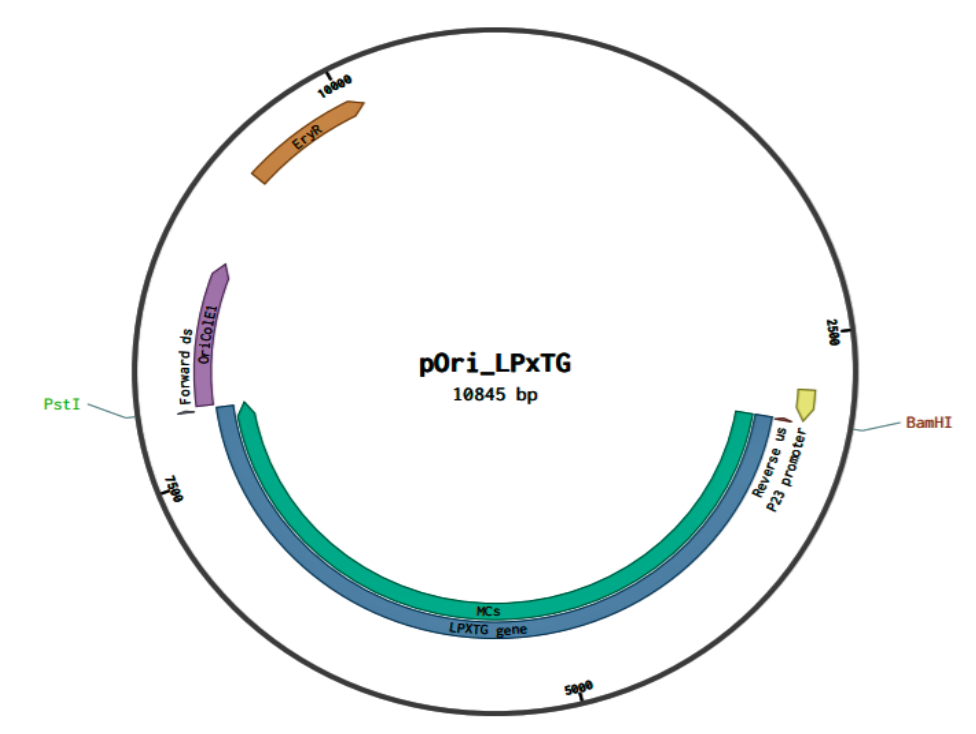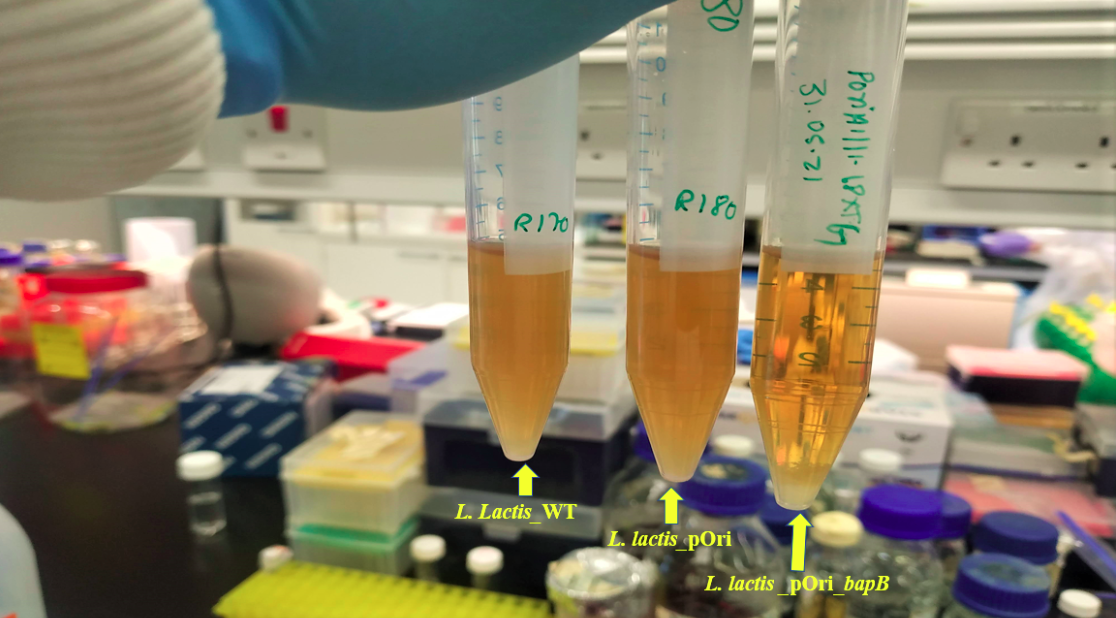Characterization of a Novel Cell- Wall anchored protein in the multi-host pathogen Group B Streptococcus
This research was conducted at the Roslin Institute under the supervision of Dr. Nicola Lynskey for a period of six months. The aim of this research is to investigate the surface protein of GBS that is responsible for causing bovine mastitis, a devastating health problem among cows.
Group B Streptococcus (GBS) is a commensal pathogen of humans and a major cause of mastitis in dairy cattle. GBS’s nature of infecting multiple hosts is due to the distinctive genomic structure and the presence of several virulence factors where cell-wall-associated protein is one of the key components involved in colonization and invasion. Therefore, understanding the virulence mechanism of this one health-concerned pathogen is a prerequisite for future interventions. Here, we aimed to characterize a novel cell-wall-anchored protein in GBS isolated from a bovine strain with mastitis. Initially, we designated the protein as the Bovine adhesion protein of GBS (BapB).

Bioinformatic analysis revealed BapB as a member of Antigen I/II family polypeptide adhesins, which are found widely across the Streptococcus genus. Further analysis using PHYRE2 modeling of BapB showed a close association with the major cell-surface adhesion protein of S. mutans antigen I/II protein. More importantly, antigen I/II protein has never been characterized by bovine strain, imparting a novel finding in the field of veterinary health. We found that BapB when expressed on the surface of the non-pathogenic bacterium Lactococcus lactis confers adherence to epithelial cells, more firmly to bovine mammary epithelial. Moreover, the autoaggregation phenotype presented by BapB strongly supports its role in adherence to host epithelial cells.
Collectively, these findings establish a new bacterial adhesion protein in the bovine strain that could be a potential virulence factor in bovine-associated infection. Further investigation on whether BapB is essential for colonization could provide a target for vaccine candidates.
